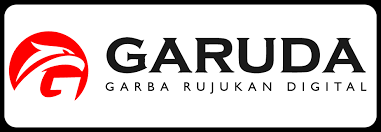Meningkatkan Kompetensi Pedagogi dengan Model Lesson Study bagi Guru SD di Kabupaten Bone
(1) Prodi PGSD FIP Universitas Negeri Makassar
(*) Corresponding Author
DOI: https://doi.org/10.26858/jkp.v4i2.13743
Abstract
This study aims to improve pedagogical competencies especially elementary school teachers in Bone Regency. The study was conducted with a semi-experimental approach with the Lesson Study (LS) model. There were 20 teachers were directly involved from four elementary schools in Watampone. The procedures adopted were motivating, explaining, discussing, designing learning, implementing and observing learning, reflecting, designing and re-implementing the results of reflection in collaboration. After taking meet for three times, the results were very satisfying. Participants who stated LS were very appropriate to improve teacher pedagogical competence by 85%, exactly 15%, inaccurate and incorrect in each 0%. Qualitatively, the LS model is very effective in increasing the pedagogical competence of elementary school teachers in Bone. The main value of the LS model is that learning quality improvement was carried out directly in the learning process and activities. So, the teacher learns in the learning process about how to teach effectively and efficiently. It was recommended to teachers that this LS becomes one of the regular professional activities to improve the quality of the teaching profession.
Keywords
Full Text:
PDFReferences
Churchill, Rick, et al. (2011). Teaching Making Difference. First Edition. Australia: John Wiley and Sous Autralia, Ltd.
Fernandez, C. & Yoshida, M. (2001). Lesson Study as a model for improving teaching: Insights, challenges and a vision for the future. http://www.c-b e.org/PDF/ EyeoftheStormFernandez.pdf
Isoda, M, Stephens, M., Ohara, Y. & Miyakawa, T. (2007). Japanese lesson study in mathematics: Its impact, diversity and potential for educational development. Singapore: World Scientific.
Lewis, C. (1997). Improving Japanese science education: How “research lesson” build teachers, schools, and a national curriculum. Paper presented at the Conference on Mathematics and Elementary Science Education, Berlin, Germany.
Lewis, C. (2004). Does lesson study have a future in the United States? www.sowi-onlinejournal.de. Retrieved on 20 October 2008 from http://www.sowi-onlinejournal.de/2004-
Stepanek, J. (2003). Researchers in every classroom. Northwest Teacher, 4 (3):2-5. Available:http://www.nwrel.org/msec/images/nwteacher/spring2003/ spring 2003 .pdf
Shimahara N.K. (1998). The Japanese model of professional development: Teaching as craft. Teaching and Teacher Education, 14 (5): 451-462.
Stigler, J. & Hiebert, J. (1999). The teaching gap: Best ideas from the world’s teachers for improving education in the classroom. New York: Free Press.
Sudirman. 2011. Keberkesanan Lesson Study bagi Meningkatkan Kerjaya Guru dalam Pembelajaran. Makalah disampaikan pada Seminar Lesson Study di Fakulty Pendidikan, UKM Kuala Lumpur Malaysia.
. 2014. Lesson Study: Problem Solving for Integrited Thematic Instruction (ITI) in Indonesia, Power Point Presentation. Nagoya Assembly of Lesson Study 5 Meeting, October, 31, 2014, Nagoya University, Jepang.
White, A. L., & Southwell, B. (2003). Lesson study project: Evaluation report. Sydney: Department of Education and Training.
Wiburg, Karin & Brown, Susan. 2007. Lesson Study Communities. Incrreasing achievement with diverse student. California: Corwin Press
Article Metrics
Abstract view : 192 times | PDF view : 25 timesRefbacks
- There are currently no refbacks.
Copyright (c) 2020 sudirman sudirman

This work is licensed under a Creative Commons Attribution-NonCommercial 4.0 International License.
Dipublikasikan oleh
Program Studi Pendidikan Sekolah Dasar Kampus VI UNM Bone
Universitas Negeri Makassar
Jalan Sudirman Watampone.
Hubungi 085299249197
Email: neysaamran@yahoo.co.id
JIKAP Terindex:

JIKAP dilisensikan di bawah Lisensi Internasional Creative Commons Attribution-NonCommercial 4.0 .
Dedicated to:












